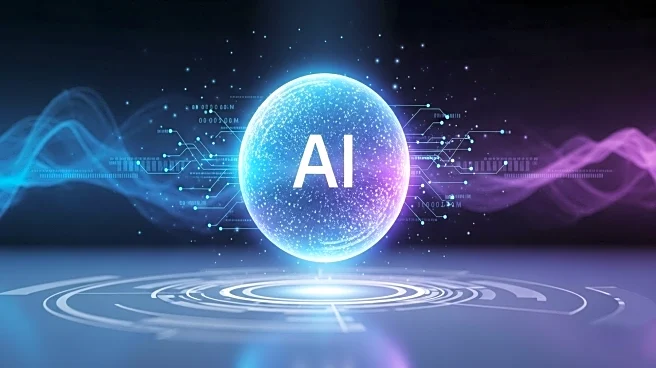What is the story about?
What's Happening?
Jeff Bezos, founder of Amazon, has joined OpenAI CEO Sam Altman in acknowledging the existence of an AI bubble. Both leaders have noted the similarities between the current AI market and the dot-com bubble of the late 1990s, which saw rapid growth followed by significant financial losses. Altman has expressed that while the AI market is in a bubble, it could ultimately be a net win for the economy. Bezos, speaking at Italian Tech Week, emphasized that the current bubble is industrial rather than financial, suggesting it may lead to positive outcomes similar to the biotech boom of the 1990s, which resulted in the development of life-saving drugs despite financial setbacks.
Why It's Important?
The recognition of an AI bubble by influential figures like Bezos and Altman underscores the high stakes involved in the current AI boom. Investors are concerned about the potential for financial losses akin to those experienced during the dot-com era. However, Bezos argues that industrial bubbles can drive innovation and societal benefits, as seen in past technological advancements. The AI sector's rapid growth could lead to transformative changes across industries, potentially benefiting society at large. This perspective may reassure investors about the long-term value of AI, despite short-term volatility.
What's Next?
As the AI bubble continues to develop, investors and companies may face challenges in distinguishing viable projects from those driven by hype. Bezos suggests that once the bubble settles, the winners will emerge, providing significant benefits to society. Companies may continue to invest heavily in AI technologies, aiming to capitalize on its transformative potential. The ongoing debate about the AI bubble's impact will likely influence investment strategies and public policy decisions related to technology development.
Beyond the Headlines
The discussion around the AI bubble raises ethical and cultural questions about the role of technology in society. As AI becomes more integrated into various industries, concerns about data privacy, job displacement, and the ethical use of AI technologies may become more prominent. The long-term implications of AI's growth could reshape societal norms and expectations, prompting discussions about regulation and responsible innovation.
















